Chicken, a fluffy little bird, always embellishes your garden but, at the same time, chickens are most vulnerable and are easy prey to many predators.
Even though you are taking care of your chicken yet, you might be lacking behind somewhere and you can lose your chicken without even knowing the actual cause. I know how it feels as I had lost my chickens due to the same negligence.
It is quite delusional to believe that predators don’t eat chicken. They love to kill chicks and adult chickens just like rats and snakes, who also hunt them!
So, if you are anxious about your chicken and you want to know the ways that can ensure the safety of your chicken, then you are reading exactly the right article.
I am putting forth ten ways that guarantee the protection of your chicken.
How to protect chickens from predators
1. Identify the Enemy

The prime step to take is to identify the predators of your area such as possums, hawks, raccoons, snakes, owls, coyotes which are common.
Recognition of the enemy can help you to get into the right direction of adopting appropriate ways for the defense of your chickens.
Some of the predators are canny while some are carpetbaggers. Simple lawn safety can prevent any enemy.
You need to stay vigilant in the day and at night because numerous animals like raccoons don’t hunt in the day time.
Implanting a security camera can also be a helping tool in finding out the predator that is planning to convert your chickens into his food.
2. Cover the Coop
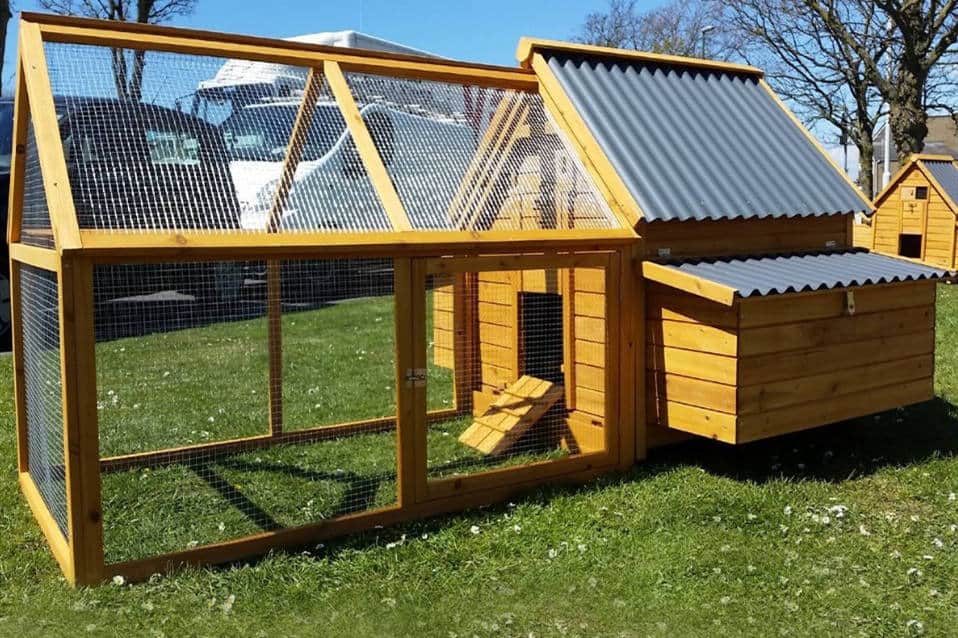
People typically focus on the ground and they forget that a predator can attack from above.
Many predators such as hawks or owls dive right in from the sky and will take your chickens away. Not only is this, but some predators like possums and snakes are excellent climbers.
So to keep chickens safe, a need is to cover the coop with the help of a wire mesh.
But if you want to provide shade to your chickens, you can also use trap sheets instead of chicken wire.
Keep the coverage at the height of at least 5 to 6 feet to ensure more visibility and a reasonable height for your chickens so that they can quickly jump and can spread their wings.
3. Daily Collection of Eggs
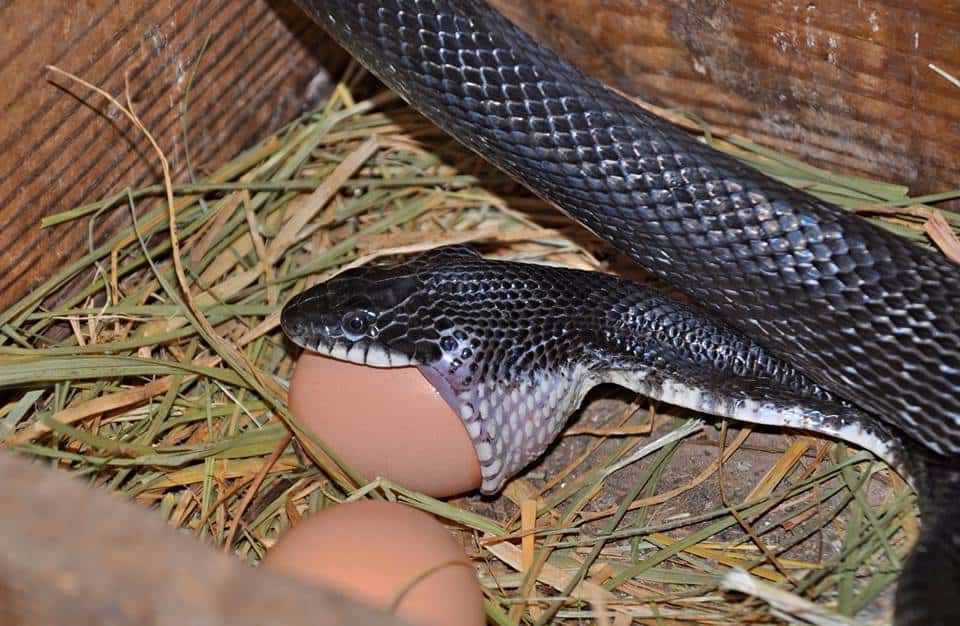
Eggs of the chickens are also known as the feast for predators. Snakes, rats, possums and raccoons are highly attracted to eggs.
You need to collect the eggs daily from the run because one single moment of negligence can put the life of your chickens at stake.
If you ensure the daily collection of eggs, you will discourage many animals, especially rats and snakes.
Eggs are for you to enjoy and not for the predators.
4. Block the entree holes
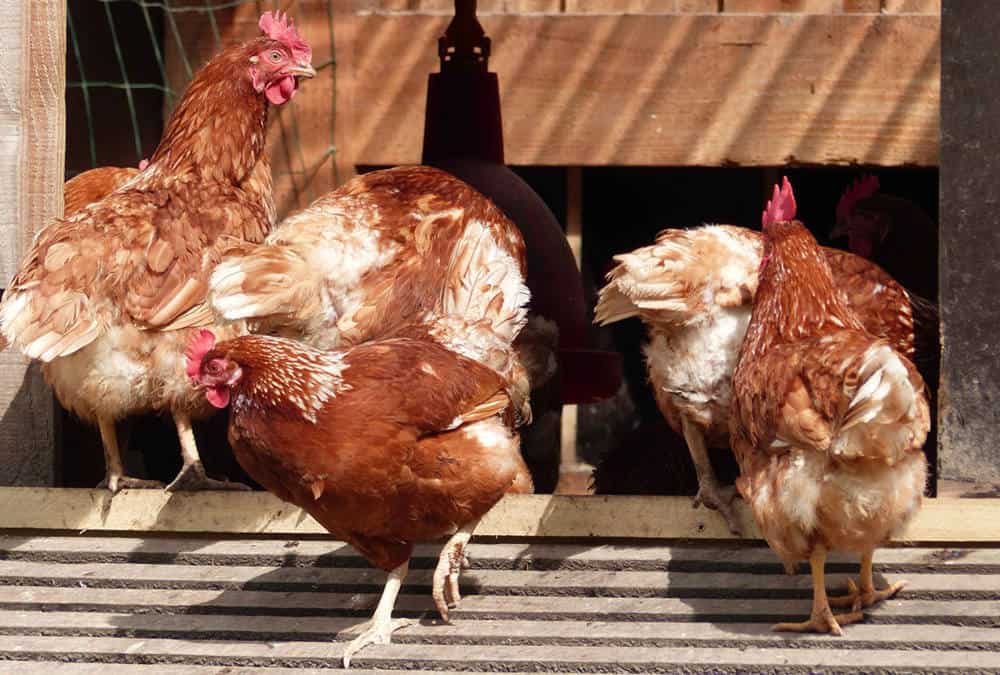
There is a dire need to check the coop every day. Any single entrée hole can prove fatal for your chickens. Animals like weasels can squeeze through a ½ inch hole and nobody wants to see a weasel in the coop.
Therefore, every entrée hole should be blocked and you should not allow any outsider to sneak into your bird’s house.
You will be surprised to know how small predators like snakes can enter the coop through a tiny hole and can engulf your eggs and chicken in some cases.
Moreover, closing every entrée hole can create a problem for the ventilation for the chicken.
So to solve this issue, you must carve ventilation holes at the coop’s top and ensure the predators do not climb on the coop.
5. Use Electric Wire
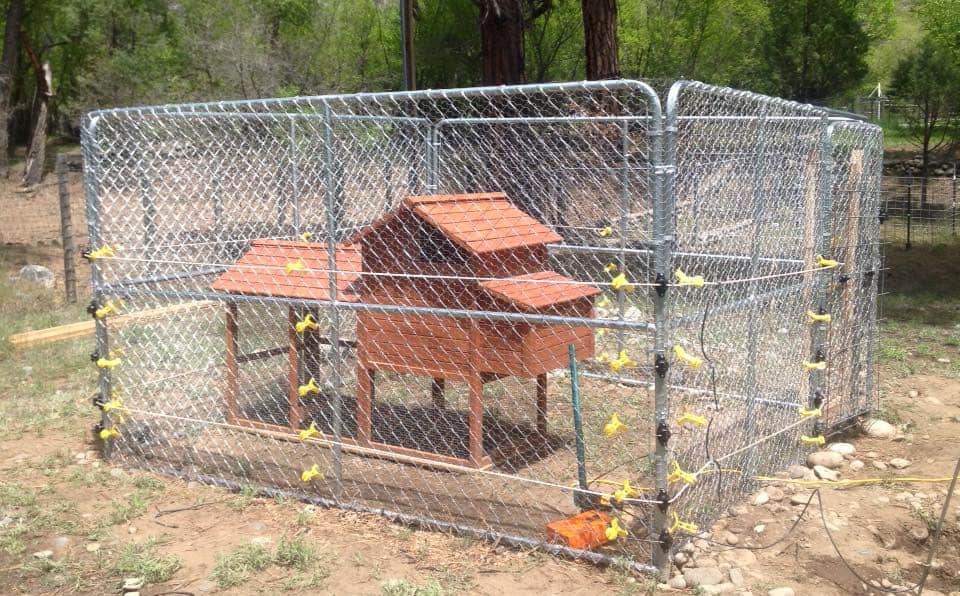
It is quite hard to have surveillance of the coop, the whole day especially for the animals such as raccoons and possums who like to attack in the dark.
So, there is a need to use electric wire out of the coop. The electrical fence is to be placed at least 3 feet away from the coop as we don’t want to shock our chickens.
Electric shock should only terrify the predator and not kill it as killing an animal, in such a way, is illegal.
Normally electric wire aids get rid of a majority of animals and you don’t have to worry about your chickens at night.
6. Install underground Chicken Wire
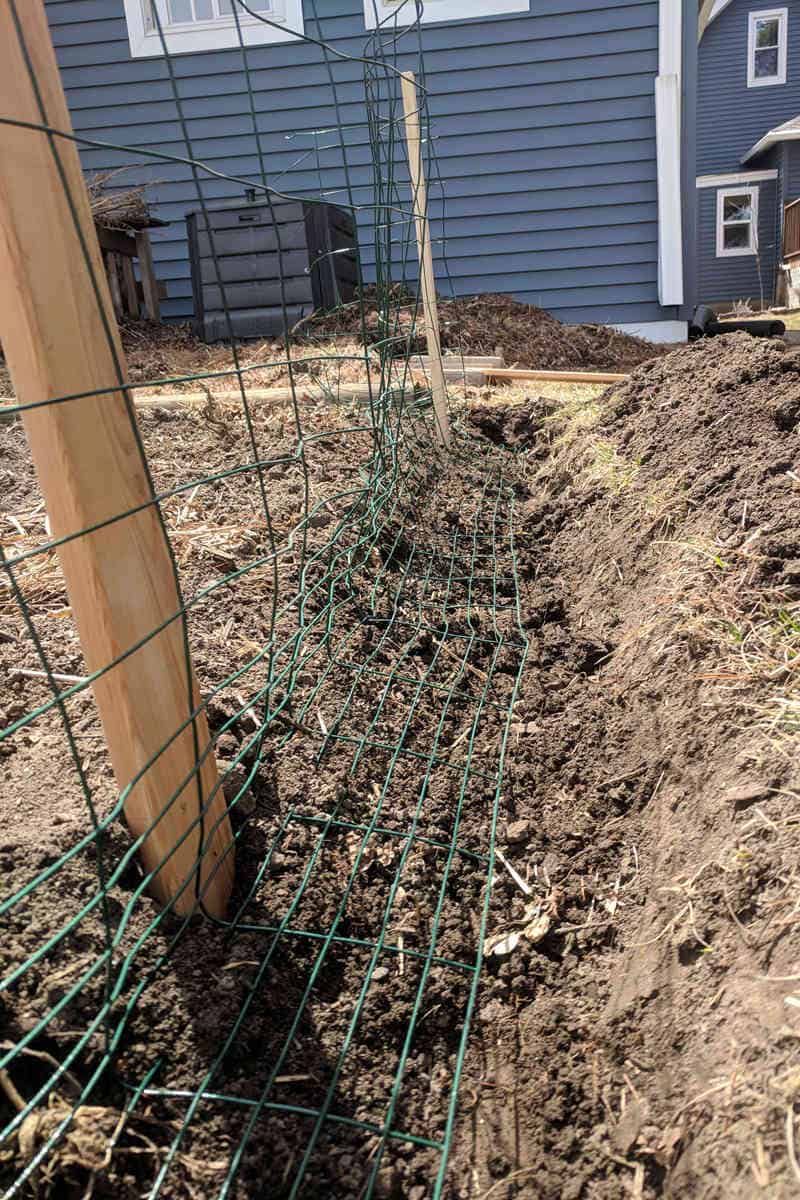
Some vicious and starving predators can dig down the earth to reach your chickens.
It is quite mandatory to bury a chicken wire while constructing a coop as chicken wire helps to keep your chickens in whereas the hardware mesh keeps the predators out.
It is better to bury the chicken wire at least 2 feet deep while constructing a run. It will be ideal if it is 4 feet deep.
Not only this but the hardware mesh also needs to be buried so that any underground passage to reach the chicken should be blocked.
You can dig a pit 3 inches wide and 6 inches deep and can bury a hardware mesh to ensure underground security perimeters.
Making a floor of wire mesh is not encouraged as it can give cuts and sores to chicken’s feet.
7. Keep a check on the Biosecurity
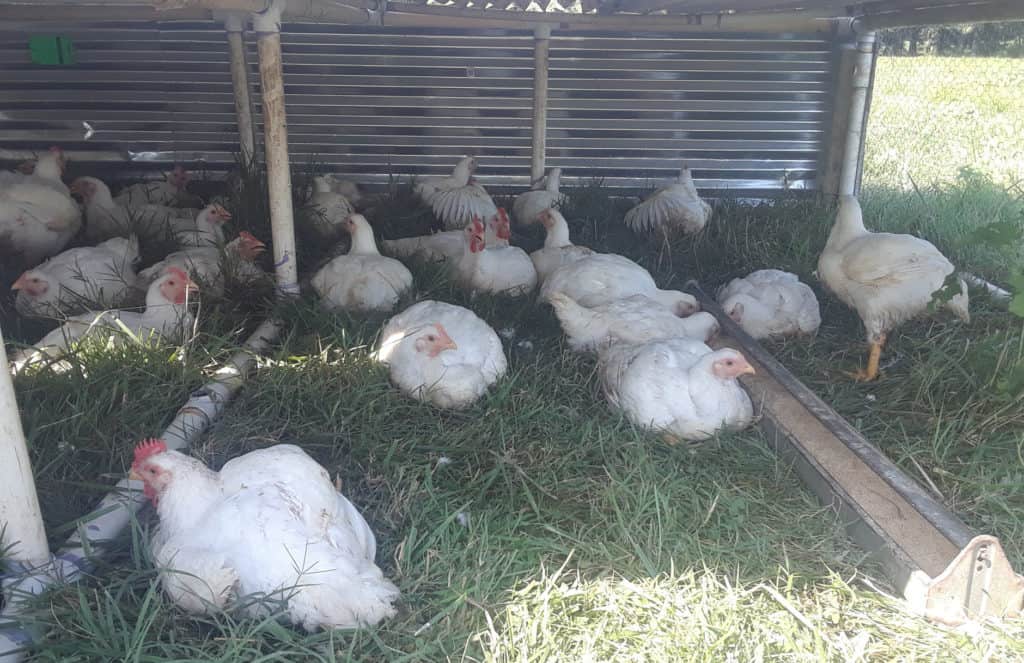
As soon as your chickens go to roost in the evening, you need to thoroughly check the coop and pay attention to any scrap or leftover food.
Any leftover food is an open invitation for many predators, especially rats and snakes.
Once they enter the coop, then they, admittedly, are going to eat the eggs and the chicks.
Typically, we don’t consider rats as a predator but a rat is equally harmful as other predators.
So, a proper check and cleaning are needed so that no food or scrap can be used as bait to compel predators towards the coop.
8. Escalate Visibility
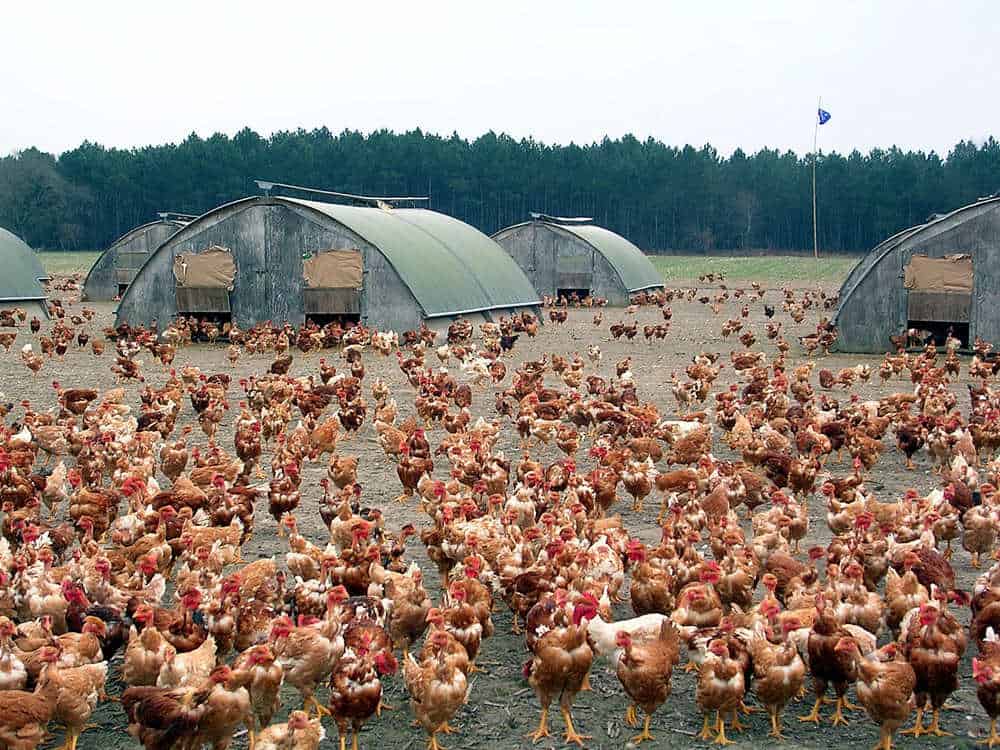
If you are lucky enough to have a huge backyard, then trim the bushes and trees in order to get a vivid view of the coop.
Any overgrown bush within 50 to 75 feet of the coop should cut down so that the predators cannot find a place to camouflage themselves.
Predators are unlikely to attack in the open areas and no trees or bushes, around, will mitigate the number of attacks on the chicken.
Enhancing visibility will also aid in keeping an eye on your chickens for quite a long distance. You can easily do the chores along with the invigilation of the coop.
9. Implant Motion Sensing Light

The best solution to the night predators is the motion-sensing lights. Animals like raccoons come out of their homes at night and prefer to search for their prey when there is no light.
A motion-sensing light lightens up as it senses anything roaming around. As the light switches on, the predator gets terrified and runs away.
You can install solar powered motion detecting lights. It will help you to not connect to any wires around the coop.
Furthermore, alarms can also get adjusted with the motion-sensing lights. As the light switches on, you will be warned of the danger roaming around your chickens.
This alarm activation will help you keep an eye over the coop even at night, and you can take action against the animals that are determined to hurt your pet chickens.
10. Lock up the Chickens at night
One of the significant blunders often committed by the people is that they don’t lock up their chickens.
Closing the door tight or putting some heavy objects in front of the door doesn’t mean locking up the chickens.
Numerous predators are smart, and they can easily open doors that are not properly locked.
I personally use three locks to ensure the safety of my chicken at night. One bolt is used on the main door of the coop, and the other two are used for the pop door.
An extensive locking system ensures maximum safety at night. Almost half of the security is guaranteed with the help of proper shutting of the chickens.
Conclusion
Chickens are near and dear to everyone and are needed to be fostered. The flesh of this bird tastes so good that every carnivorous and omnivorous want to eat it.
But there is no need to worry about the predators out there. The aforementioned techniques are a natural remedy to your problems.
All you have to do is to build or buy a chicken coop, fence it up, install an electric wire outside the coop and you are good to go. Don’t forget to bury the hardware mesh.
We will take care of all your questions, so feel free to ask if any.

Joseph Hudson has been raising chickens for over 15 years. In 2018, he completed the Agriculture & Natural Resources program at Mt. San Antonio College. He currently raises over 1400 chickens on his 7.5-hectare farm. He keeps sharing his experience on raising healthy and happy chickens on Chicken Scratch The Foundry.
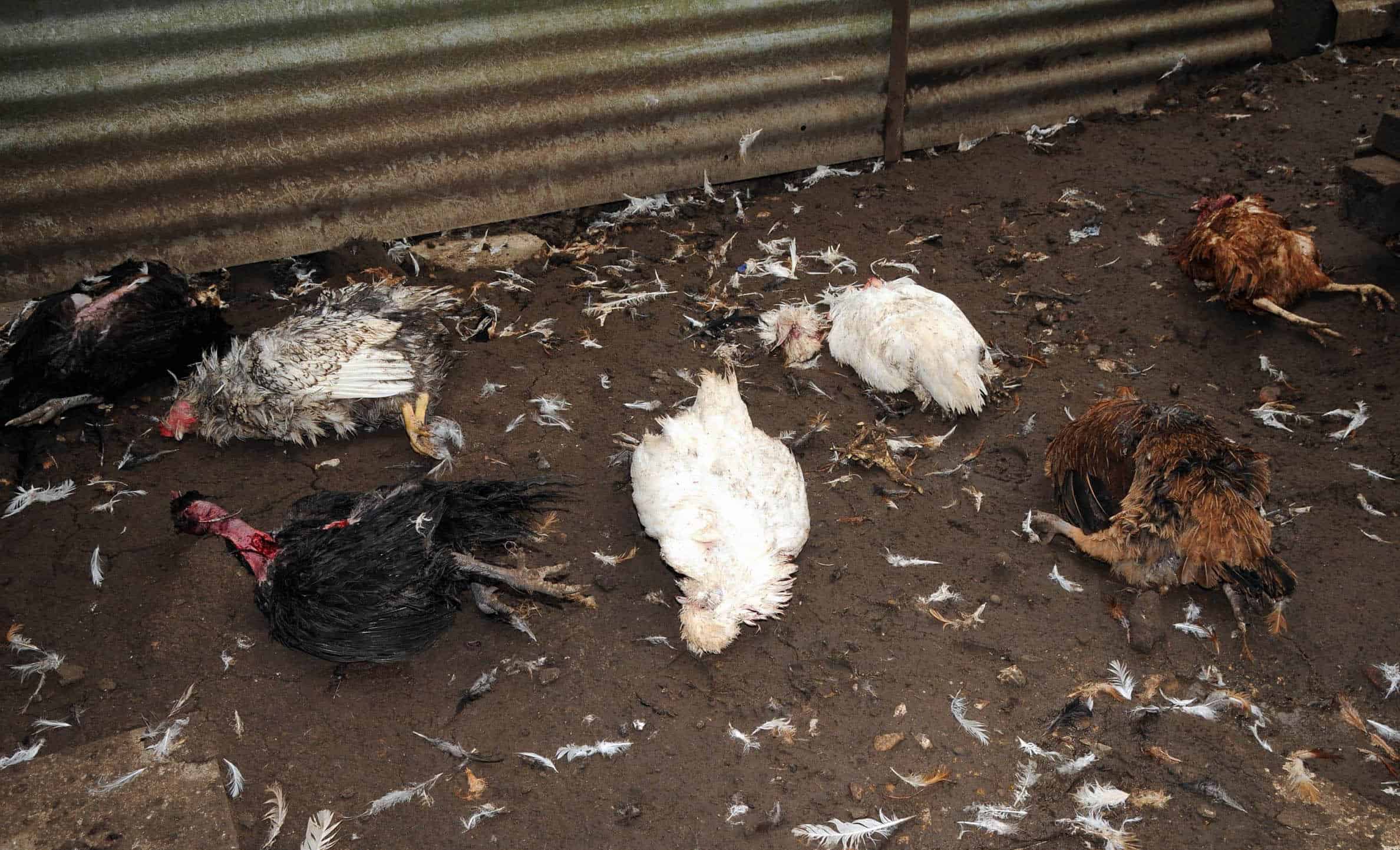







I have 3 hens and a rooster a little over a year old. I started out with 5 hens and a rooster buy, a fox has gotten two hens. Now I have 3 hens and one is broody and no matter how many times we take her eggs from under her she still insists on sitting on the nest all day everyday. When we do take her out and she tries to join the others the rooster attacks her and the other hens seem to shun her and chase her. We are getting rid of the rooster because he has become mean, attacks us and our 1 year old grandson is walking and we can’t risk him being attacked. The rooster is going tomorrow afternoon, found someone to take him. I’m now concerned with the safety of my hens and that broody hen. I was planning on getting 3 more hens but now don’t know what to do. I live in a rural area with lots of room for them to roam so I do let them out late morning and they go back in a night, we always shut the door to keep them safe. Will the remaining hens be alright to let out without the rooster to warn them and will the brooding hen come out and stay with rooster gone? Should I wait a while to add more hens to flock?